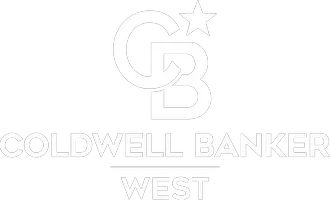San Diego considering 3 low-income housing proposals for 101 Ash St.
Three unknown entities are vying to convert the city of San Diego’s empty and asbestos-ridden office tower at 101 Ash St. into residential units for low- or extremely low-income families.
The subsidized housing proposals surfaced after the city cut ties with a previous bidder for the troubled property, Jay Goldstone, a special adviser to Mayor Todd Gloria, told the Union-Tribune. They will be presented to City Council in a closed session briefing tentatively scheduled for Sept. 23, he said.
Goldstone said he could not disclose the names of the three new bidders or reveal specifics related to the proposals, which have been reviewed by real estate consultant Keyser Marston Associates.
Goldstone will share the unsolicited offers with council members in the closed session meeting. He will also make a recommendation, on behalf of the mayor, to either move forward with one or more of the bids or once again offer 101 Ash for lease or sale alongside a handful of adjacent municipal blocks.
The new twist is the latest in the city’s years-long quest to close the book on a building that has come to symbolize civic waste.
Built in 1967, the 21-story office tower at 101 Ash St. has been mostly vacant since mid-2015, when Sempra Energy moved out. In early 2017, the city entered into a 20-year, lease-to-own agreement with Cisterra Development, expecting to house a portion of its downtown workforce in the 314,544 square-foot building. But the city, after completing a larger-than-anticipated remodel, aborted the plan because the building could not be occupied due to asbestos and other issues. Lawsuits followed.
In 2022, the city purchased the empty tower in a controversial settlement agreement that’s still being contested. A taxpayer lawsuit filed by former San Diego City Attorney Michael Aguirre, currently in state appellate court, is seeking to unwind the transaction.
Shortly after buying the building, the city decided to sell it.
Last year, the city put the Ash Street block on the market alongside its four-block, civic complex home to the aging City Administration Building and other facilities. The eight acres of municipal real estate were made available for redevelopment, per the conditions of California’s Surplus Land Act, as part of a sweeping-but-still-nascent plan to use transaction proceeds to build or buy an all-new City Hall complex.
The Ash Street property was, however, the only block to garner developer interest. At the time, the city engaged in preliminary talks with developer Reven Capital, which proposed to convert the office building into subsidized housing. The city severed its relationship with the real estate investment firm in April, citing an impasse on negotiation terms.
San Diego has since been preparing to put all five blocks back on the market. It is currently waiting for urban planning firm U3 Advisors to finish its big-picture vision for the downtown blocks. The consultant’s work is expected to be completed later this year.
In the interim, three separate entities stepped forward with unsolicited, low-income or supportive housing proposals for the Ash Street property, Goldstone said.
Two of the proposals are for affordable housing, with bidders seeking to turn the 21-story office tower into a residential building with 100 percent of units set aside for low-income households. The third proposal is for supportive housing, meaning housing for homeless people that incorporates support services.
It’s unclear if any of the new bidders have figured out how to make their conversion projects financially feasible.
Affordable housing projects are, by definition, those that rely on a combination of local, state and federal subsidies, including low-income housing tax credits, to create housing for low-income families making 80 percent or less of the area median income. Developers are required, per the restrictions associated with the subsidies, to deed-restrict their affordable units based on household income. They must also rent out the units at below-market rates set by government agencies with rent usually no more than 30 percent of household income. Typically, the greater the level of a project’s affordability, the larger the subsidy that is needed.
The uncertainty of Reven’s ability to secure tax credits, which are competitive and can be only be applied for after plans are finalized, complicated the now-eliminated developer’s talks with the city.
Categories
Recent Posts











